Politics
Governors struggling with insolvency of states
Published
8 years agoon
By
Olu Emmanuel
• Seek weak palliatives
By SUNDAY ODIBASHI
THE governors of the 36 states of the Federation has continued to contend with overdose consequences of the ill-conceived motives of state creation and the loss of monumental powers to the federal government in the era of military regimes. The consequences are becoming severe that majority of the states are facing threats of extinction arising from the inability if those states to perform their constitutional functions.
Several states are currently groaning in huge debts, many cannot pay salaries of civil servants within their jurisdiction. The development of infrastructures is also under serious threat, while provision of public services in the education, health or other sectors, has declined remarkably.
The bail-out fund disbursed penultimate week to various states by the federal government to pay outstanding salaries to the state workers was unable to pull about 24 states out of the financial crisis. The woes of the states are being compounded by the drastic fall in the price of crude oil in the international market, leading to sharp decline in revenue generation in the country.
As the financial pressure increases on states, Governors of the 36 states of the Federation, who constitute the Nigeria Governors Forum (NGF), made demand for a new fiscal restructuring plan during a meeting with President Muhammadu Buhari at the Presidential Villa, Abuja.
They were seeking what will alleviate momentary difficulties of the economic realities in their states, where they are finding it difficult to pay workers’ salaries. The governors, demanding a new revenue sharing formula, submitted a Fiscal Restructuring Plan for the country to the President.
President Buhari was said to have remarked at the meeting that despite the bailout funds disbursed to the states, 24 states could still not pay workers salaries; acknowledging that the situation was of great concern to him.
The President had promised that the Federal Government will hasten action on refunding monies spent on federal infrastructure by the states, promising to set up an inter-ministerial committee to study the document of the proposal for a new revenue sharing formula which will require legislation by the National Assembly.
In the current revenue sharing formula, the Federal Government takes 52 per cent, state governments 26 per cent and local governments 20 per cent.
The irony is that the demand by governors is coming at a time the federal pool from where revenue is being shared or allocated to the various levels of government is drying up. Perhaps, new revenue formula may not change the situation.
There are indications that the revenue crisis is a function of weak production capacity of the economy which is perpetually import driven and only operating in the periphery of the global economy. Apparently, the peripheral economy of the country became a tragedy of failed economic transition that would have moved the country from raw material exporter to processed products and manufacturing economy.
Our survey found that the regions which subsequently metamorphosed into states were the entities of economic production and wealth creation in the pre-colonial era into the First Republic in the 1960s. Accordingly, each of the four regions can boast of established raw material production and revenue generation from such production, then, paying 50 per cent of the revenue to the federal government.
All the raw material production forces were liquidated at the time the military began nationalization of the marketing boards in the regions, from the Northern region to Eastern, Western and Mid-Western regions. The products also became non-existence. The nationalization of the businesses of the regions and the subsequent states, as well as other military policies, preponderantly empowered the federal government to usurp the powers of the states, including the ‘killing’ of the production capacity of the states.
The economy, however, was rescued by the commercial sales of crude oil which has boomeranged on the country’s economy.
More so, the states are further trapped by the principles of their creation ab initio which were not in consideration of economic viability of their existence.
The Mid West, for instance, was created in 1963 out of the Western Region to weaken the political influence of Chief Obafemi Awolowo, Premier of the region. The 12 states were also created in 1967 by General Yakubu Gowon out of the four regions to weaken the influence of late Odumegwu Chukwuemeka Ojukwu, then, Governor of the Eastern region.
Since then, state creation has been providing opportunities for leaders in smaller political entities access to the Federation Account in the sharing of the wealth of the country.
In all, more powers and funds have been concentrated at the centre; governors have continued to run to the centre for share of the concentrated fund.
It is expected that governors should be demanding for devolution of powers to the states and the reactivation of the production capacity of states. This is the only basis states can improve on internally generated revenue from army of workers within their respective jurisdictions.
You may like


SSANU, NASU members block UNILAG gate over withheld salaries


Amazing Pictures expands to UK: Revolutionizing art investment with Pop-Up galleries
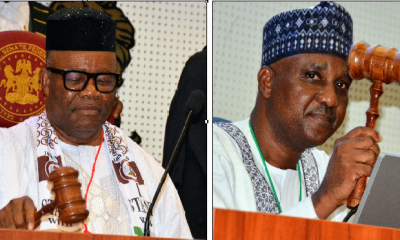

How National Assembly budget rose from N2.2bn in 1999 to N344.9bn in 2024
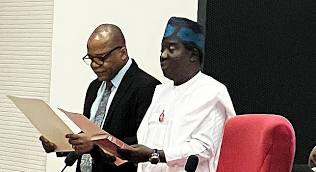

Simon Lalong resumes as Senator in 10th NASS after being sworn in
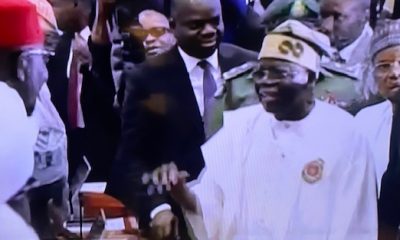

Tinubu presents 2024 Budget proposal of N27.5trn to Joint Session of National Assembly
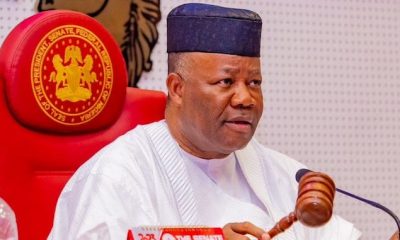

Senate passes 2024-2026 MTEF-FSP, N26trn budget proposal for 2024
Trending

 Aviation7 days ago
Aviation7 days agoForeign airlines using lower price to force Air Peace from Nigerian-London route–Onyema

 Business4 days ago
Business4 days agoDollar crashes further against Naira at parallel market

 Business4 days ago
Business4 days agoRecapitalisation: Zenith Bank to raise funds in international capital market

 Education4 days ago
Education4 days agoArmy reveals date for COAS 2024 first quarter conference

 Crime4 days ago
Crime4 days agoFleeing driver injures two on Lagos-Badagry expressway

 Business1 week ago
Business1 week agoCrude oil sells above $90 per barrel as ceasefire deal between Hamas, Israel fades
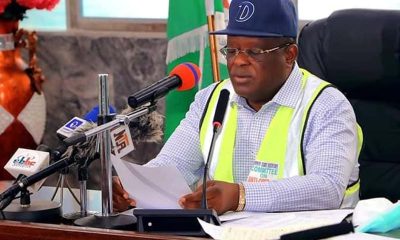
 Business6 days ago
Business6 days agoLagos Calabar Coastal Road project will offer significant economic benefits–Umahi

 Business4 days ago
Business4 days agoZenith Bank surpasses N2trn earnings milestone

